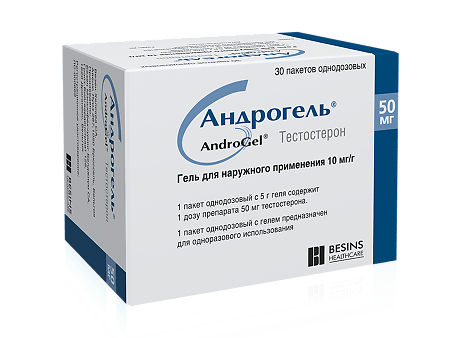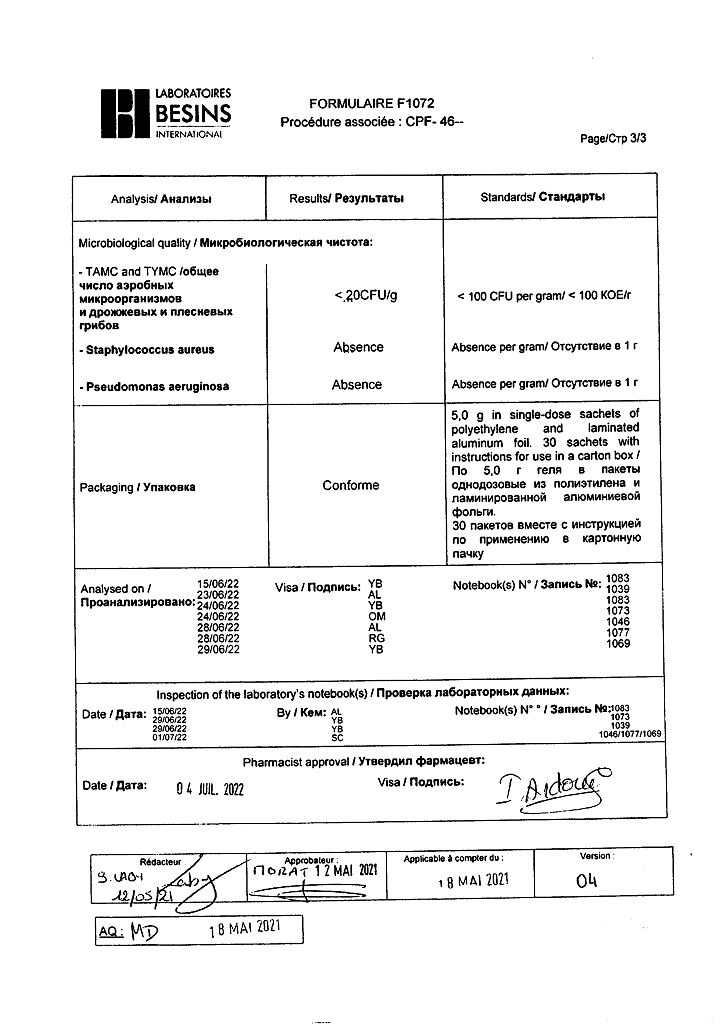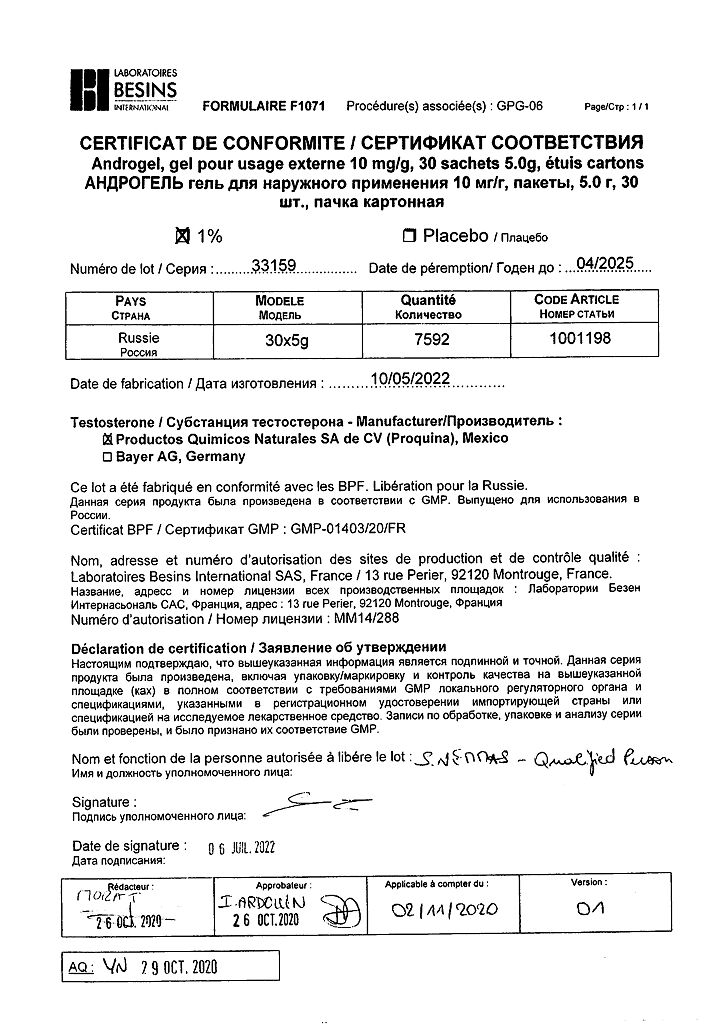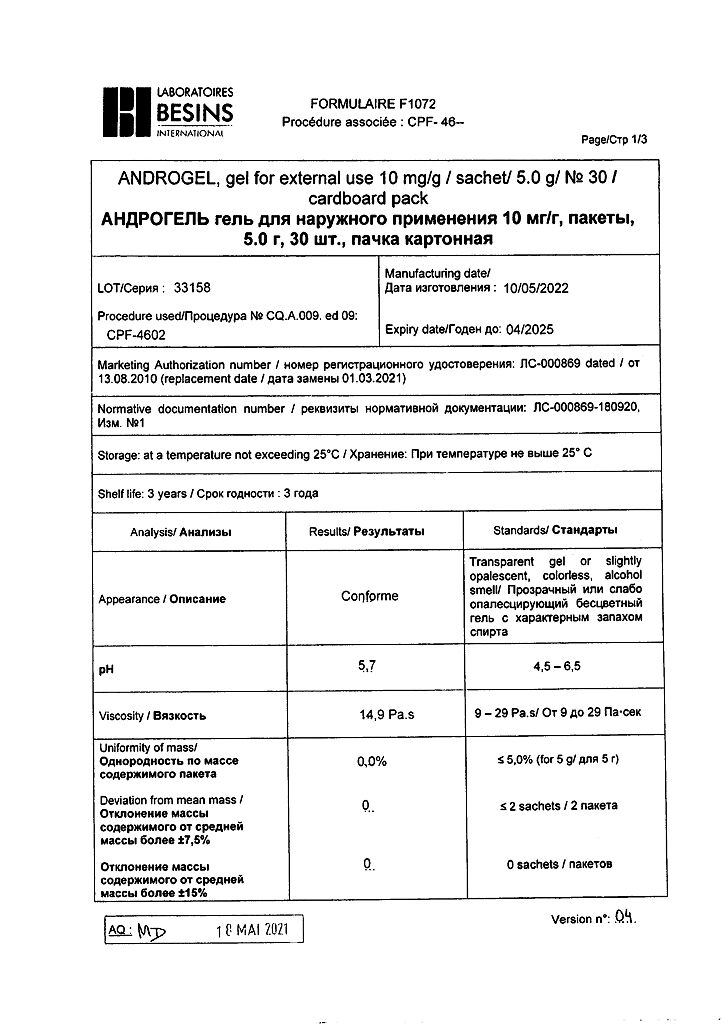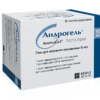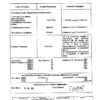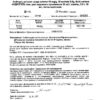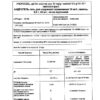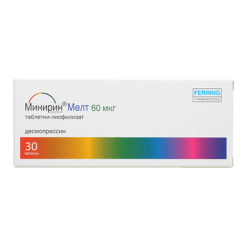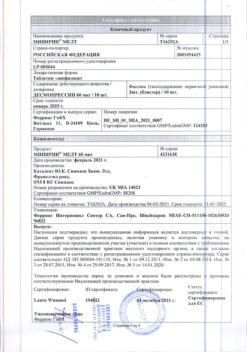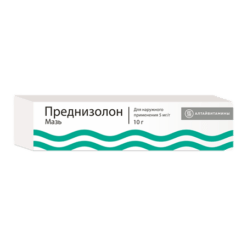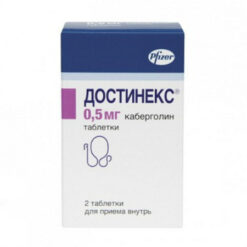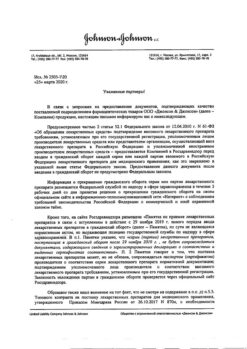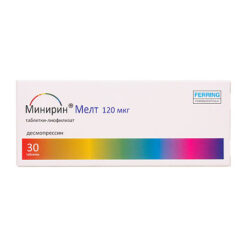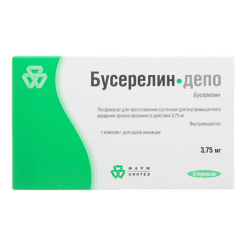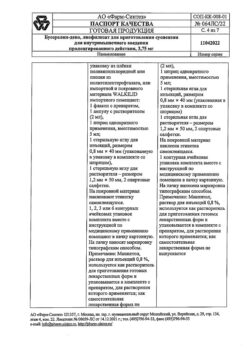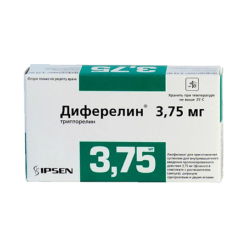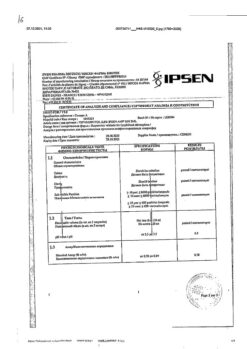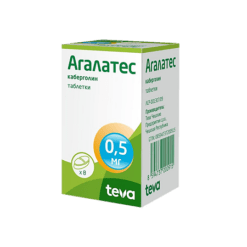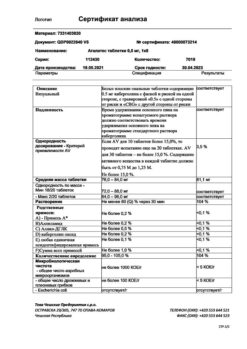No products in the cart.
Androgel, gel 10 mg/g 30 pcs
€86.37 €76.97
Description
Endogenous androgens, mainly testosterone secreted by the testicles, and their main metabolite dihydrotestosterone are responsible for the development of external and internal genitalia and for the maintenance of secondary sexual characteristics (stimulation of hair growth, coarsening of the voice, development of libido); For the overall effect on protein anabolism; for the development of skeletal muscles and distribution of subcutaneous fat; for reduction of urinary excretion of nitrogen, sodium, potassium, chloride, phosphate and water.
Testosterone does not cause testicular development: it reduces pituitary gonadotropin secretion.
Indications
Indications
Replacement therapy for endogenous testosterone deficiency.
Pharmacological effect
Pharmacological effect
Endogenous androgens, mainly testosterone, secreted by the testes and their main metabolite dihydrotestosterone are responsible for the development of the external and internal genital organs and for the preservation of secondary sexual characteristics (stimulation of hair growth, deepening of the voice, development of libido); for the general effect on protein anabolism; for the development of skeletal muscles and the distribution of subcutaneous fat; for reducing urinary excretion of nitrogen, sodium, potassium, chlorides, phosphates and water.
Testosterone does not cause testicular development: it reduces the pituitary secretion of gonadotropins.
Special instructions
Special instructions
Androgel should be used only in case of testosterone deficiency, accompanied by such clinical manifestations as: underdevelopment or regression of secondary sexual characteristics, changes in body structure, disturbances of carbohydrate and lipid metabolism, obesity, asthenia, sexual dysfunction (decreased libido, erectile dysfunction, etc.), decreased bone mineral density, mood swings, depression, hot flashes, etc.
Before starting treatment, other possible causes underlying the symptoms described above must be excluded. Currently, there are no clear age standards for testosterone levels. However, it must be taken into account that physiological levels of serum testosterone begin to decline from the age of 30-40 years, and the level of sex steroid binding globulin increases. This, accordingly, leads to a decrease in the level of biologically active testosterone.
Due to the variability of laboratory values, testosterone concentrations should be determined in the same laboratory. Androgel is not used to treat male infertility or erectile dysfunction, the cause of which is not related to testosterone deficiency. Before prescribing testosterone, all patients should be screened to rule out the risk of prostate cancer, as androgens may accelerate the progression of subclinical prostate cancer and benign prostatic hyperplasia.
Careful and regular monitoring of the prostate gland (digital rectal examination, determination of prostate-specific antigen (PSA) in serum) and breast glands should be carried out at least once a year, and in elderly patients and patients at risk (with clinical or family factors) – twice a year.
Testosterone preparations should be used with caution in patients with malignant neoplasms due to the risk of hypercalcemia (and concomitant hypercalciuria) due to bone metastases. It is recommended to monitor serum calcium concentrations in these patients.
In patients suffering from severe heart, liver or kidney failure, treatment with testosterone preparations may cause complications characterized by edema with or without congestive heart failure. In this case, treatment should be stopped immediately. In addition, diuretic therapy may be required.
In patients taking androgens for a long period, in addition to laboratory measurements of testosterone concentrations, the following laboratory parameters should be periodically checked: hemoglobin, hematocrit (to detect polycythemia), liver function tests, and lipid profile.
Evidence has been published of an increased risk of sleep apnea in hypogonadal patients treated with testosterone esters, especially those with risk factors such as obesity and chronic respiratory disease.
In patients with diabetes mellitus receiving androgens, when normal plasma testosterone concentrations are achieved, an increase in insulin sensitivity may be observed. Some clinical symptoms: irritability, nervousness, weight gain, prolonged or frequent erections may indicate excessive androgen exposure, requiring dosage adjustment.
If the patient develops a severe local reaction, treatment should be reconsidered and, if necessary, discontinued. When using Androgel in athletes, it is necessary to take into account the fact that this drug contains an active substance (testosterone), which can give a positive reaction in anti-doping tests.
Potential Testosterone Transfer
When prescribing Androgel, it is necessary to inform the patient about safety measures. To ensure the safety of the partner, the patient should, for example, be advised to have sexual intercourse before using the drug or to observe the interval between the use of Androgel and sexual intercourse.
If sexual intercourse is carried out within 6 hours after applying Androgel, during the period of contact it is recommended to wear a T-shirt covering the area where the gel was applied or take a shower before sexual intercourse.
It is preferable to maintain an interval of at least 6 hours between applying the gel and taking a bath or shower. However, occasional showering within 1 to 6 hours of applying the gel does not have a significant effect on treatment.
It is recommended to observe the following precautions: for the patient: wash hands with soap after applying the gel; cover the area where the gel is applied with clothing after the gel has dried; take a shower before contacting your partner. for persons not taking Androgel: in case of contact with the area of application of the gel that has not been previously washed with water, it is necessary to wash the area of skin on which testosterone may have come into contact with soap and water as soon as possible; You should inform your doctor about the appearance and development of signs of hyperandrogenization such as acne or changes in normal hair growth.
If a partner is pregnant, the patient needs to be more careful about taking precautions. Pregnant women should avoid any contact of the drug with the skin. In case of contact with the drug, a woman should wash the contacted area with soap and water as quickly as possible.
When in contact with children, it is recommended to wear a T-shirt covering the area where the gel is applied to avoid the risk of children’s skin coming into contact with the drug.
Androgel should not be prescribed to patients who are unable to comply with safety instructions (for example, severe chronic alcoholism, substance abuse, severe mental disorders).
Impact on the ability to drive vehicles and other mechanisms that require increased concentration
Currently, there is no data on the effect of Androgel on the ability to drive a car and control machines and mechanisms.
Active ingredient
Active ingredient
Testosterone
Composition
Composition
Gel for external use. 1 sachet contains:
Active substance: testosterone 0.050 g;
Excipients: isopropyl myristate, ethanol (96%), carbomer, sodium hydroxide, purified water.
Contraindications
Contraindications
Hypersensitivity to testosterone or other components of the drug; the presence of breast carcinoma, prostate cancer or if their presence is suspected; There is no experience in using Androgel in women and children.
With caution:
malignant neoplasms (due to the danger of hypercalcemia and hypercalciuria); severe heart, liver or kidney failure; coronary heart disease; arterial hypertension; epilepsy; migraine.
Side Effects
Side Effects
From the blood and lymphatic system: changes in laboratory test results (polycythemia, changes in lipid levels).
From the genitourinary system: changes in the prostate gland, gynecomastia, mastodynia.
From the nervous system: dizziness, paresthesia, amnesia, hyperesthesia, mood changes.
From the cardiovascular system: increased blood pressure.
From the gastrointestinal tract: diarrhea.
From the skin and its appendages: alopecia, urticaria.
General disorders: headache.
The product contains alcohol, so if it is frequently applied to the skin, irritation and dryness may occur.
Interaction
Interaction
Androgel should be prescribed with caution with oral anticoagulants, since it is possible to enhance the effect of oral anticoagulants by modifying the synthesis of hepatic coagulation factor and competitive inhibition of binding to plasma proteins. It is recommended to monitor prothrombin time.
Patients receiving oral anticoagulants require frequent monitoring, especially at the beginning and/or end of androgen treatment.
Coadministration of testosterone and ACTH or corticosteroids may increase the risk of edema. These drugs should be used together cautiously, especially in patients with heart, kidney, or liver disease.
Effect on Laboratory Tests: Androgens may decrease thyroxine-binding globulin levels, resulting in decreased serum T4 concentrations and increased sensitivity to T3 and T4.
Levels of free thyroid hormones, however, remain unchanged, and there are no clinical manifestations of hypothyroidism.
Overdose
Overdose
There have been no cases of overdose when using Androgel.
Storage conditions
Storage conditions
Store at a temperature not exceeding 25° C.
Shelf life
Shelf life
3 years
Manufacturer
Manufacturer
Delpharm Drogenbosch SA, Belgium
Additional information
| Shelf life | 3 years |
|---|---|
| Conditions of storage | Store at a temperature not exceeding 25 ° C. . |
| Manufacturer | Delpharm Drogenbos SA, Belgium |
| Medication form | gel for external use |
| Brand | Delpharm Drogenbos SA |
Related products
Buy Androgel, gel 10 mg/g 30 pcs with delivery to USA, UK, Europe and over 120 other countries.

